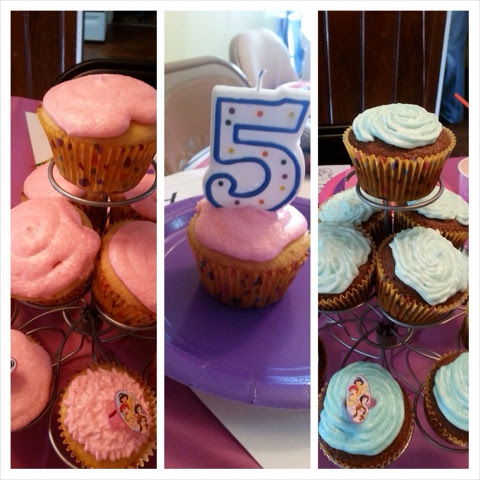Baby Teeth Hygiene
They are JUST baby teeth right? WRONG! The care and cleaning of your baby's teeth is important for long-term dental health. Even though the first set of teeth will fall out, tooth decay can hasten this process and leave spaces before the permanent teeth are ready to come in if the primary tooth is extracted. The remaining primary teeth may then crowd together to attempt to fill in the space, which may cause the permanent teeth to come in crooked and out of place. Or, the permanent teeth may not erupt at all due to lack of space.
Daily dental care should begin even before your baby's first tooth pokes through. Wipe your baby's gums daily with a clean, damp washcloth, or brush them gently with a soft, infant-sized toothbrush and water (no toothpaste!). As soon as the first tooth appears, brush it!!
Toothpaste is OK to use. Only put a smear layer (very very small amount) of toothpaste on the tooth brush for under age 2 and about a pea size for ages about 2. Choose one with fluoride. You are only putting a small amount on the brush anyways. Don't let your child swallow the toothpaste or eat it out of the tube because an overdose of fluoride can be harmful to kids but the little amount on their toothbrush won't harm them.
By the time all your baby's teeth are in, try to brush them at least twice a day and especially after meals. It's also important to get kids used to flossing early on. A good time to start flossing is when two teeth start to touch. Normally this is the primary molars that begin to touch first. You can also get toddlers interested in the routine by letting them watch and imitate you as you brush and floss. Make brushing time fun. Sing a song!
Another important tip for preventing tooth decay: Don't let your baby fall asleep with a bottle. The milk or juice will sit in the baby's mouth and cause tooth decay from the sugar that's in these drinks.
Tips:
1. See a dentist at age 1
2. Brush twice daily for your child until age 8
3. Limit candy to special occasions
4. NO gummy vitamins, change to a chewable
5. Juice with a meal only and at the most one cup a day
6. Floss ASAP especially those teeth in the back
7. Encourage healthy eating habits
8. Use fluoride toothpaste
9. Use mouth rinse, such as ACT, with the ingredient fluoride in it right before bed. Swish it around, spit and go right to bed. Do not rinse with water after use. If your child doesn't spit yet, put a little on the toothbrush or a q-tip and apply to teeth that way.









